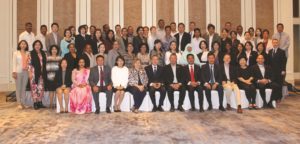
Fifty-five security professionals representing military, law enforcement and civil government agencies in the Asia-Pacific region took part in the Aug. 25 to 29 inclusion workshop in Ulaanbaatar Mongolia. The workshop, co-hosted by the Daniel K. Inouye Asia-Pacific Center for Security Studies and Mongolian Institute for Strategic Studies, was designed to address impediments to an increased role for women in regional nations’ security sectors.
As part of an ongoing international effort to increase women’s participation in the security sector, security professionals from the Asia-Pacific region gathered in Ulaanbaatar, Mongolia, for an Aug. 23 to 25 workshop.
The Daniel K. Inouye Asia-Pacific Center for Security Studies and the Mongolian Institute for Strategic Studies co-hosted the event. Fifty-five participants from the Asia-Pacific region represented military, law enforcement, and civilian government agencies.
Titled “Addressing Institutional Impediments to Inclusion in the Security Sector,” the workshop enabled participants to evaluate case studies from the region, analyze remaining hurdles to inclusion and craft recommended courses of action.
“Security sector effectiveness depends, in large part, on adequate representation of the viewpoints of those supported — the groups and communities impacted by associated policies and actions,” said DKI APCSS workshop lead Dr. Lori Forman.
DKI APCSS Director retired Lt. Gen. Dan Leaf added, “This workshop was the next big step in the DKI APCSS campaign to enable inclusive security sector governance. A diverse group of extraordinary practitioners and academics aggressively identified institutional impediments to a more complete representation of women in the security sector. They learned with and from each other, formed a strong basis for future collaboration, and identified specific actions they will take to make their organizations more inclusive.”
Participants — 23 men and 32 women — hailed from 14 countries and regions to include Bangladesh, Sri Lanka, Nepal, Burma, Indonesia, the Philippines, Vietnam, Taiwan, Japan, Mongolia, the Federated States of Micronesia, Palau, Papua New Guinea, and the United States (Guam).
Dr. Saira Yamin, a DKI APCSS associate professor, launched discussions by framing the Asia-Pacific inclusion environment with data from a survey of nations in the region.
She said preliminary survey findings from 10 locations demonstrate women are increasingly recruited in domestic security and defense forces. “It’s encouraging to note that some women are able to advance to the highest ranks in about half the number of countries, that specific measures have been adopted to recruit them, and that they are deployed to international peacekeeping and humanitarian missions.”
Nonetheless, Yamin states, there is a lack of systematic data on women’s contributions and their impact on policy making. She said exploring the gaps in knowledge was an important part of the week’s gathering.
Four case studies comprised the core of Day 2. They included narratives from the Nepal Army, Guam and Taiwan police forces, and Vietnam’s public sector in general. Presenters focused on specific questions associated with inclusion barriers and how each organization is or should be approaching them.
Questions centered on institutional impediments that limit the pool of female candidates for security sector roles, hinder their entry into related fields, limit their advancement and prevent integration of their perspectives.
In one case study, Lt. Col. Yvetta Rana, a judge advocate with the Nepal Army, walked through that nation’s efforts to recruit women into the armed service while overcoming child care-related issues, lack of female lodging and longstanding cultural resistance. Dr. Sandy Yu-Lan Yeh, secretary general of the Asian Association of Police Studies, provided a case study based on the evolving situation in Taiwan.
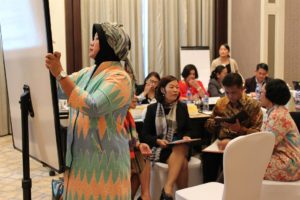
During a seminar session, participants in an Aug. 23 to 25 inclusion seminar in Mongolia discuss impediments to women’s participation in Asia-Pacific nations’ security sectors and potential solutions. The Daniel K. Inouye Asia-Pacific Center for Security Studies and the Mongolian
Institute for Strategic Studies co-hosted the event.
Dr. Hai Thi Thanh Nguyen, a lecturer at Vietnam’s Ho Chi Minh National Academy of Politics, discussed impediments to promotion, including a law setting the retirement age for women five years earlier than their male counterparts and limited opportunities for women to enroll in training and capacity development programs. While quotas are part of the response in many countries, the speakers also recommended increasing awareness of gender equity and establishing clear career paths for women’s advancement in the security sector.
Participants divided into four sub-region groups (South Asia, Southeast Asia, Northeast Asia and Ocean), analyzed the case studies, crafted a prioritized list of barriers and then developed recommendations for resolution.
“While most countries have ratified the necessary conventions, those words are not always turned into actions,” said Forman. “Examining what specifically stands in the way, and identifying steps to address those impediments, is necessary to facilitate measurable progress on inclusion.”
Participants committed to specific actions at the national, regional and individual levels, including:
– Developing national action plans;
– Creating inclusive policies and building regional networks;
– Initiating a regional research project to address data gaps to guide inclusion policies;
– Establishing regional norms for inclusion of women in the security sector;
– Considering the “repositioning” of culture to support inclusion; and
– Establishing or strengthening women’s networking organizations in the security sector.
According to Joseph Cruz, Guam’s chief of police and a case study presenter, “The workshop was probably the most dynamic forum that I’ve ever attended regarding the issue of Inclusion. Everybody represented senior or executive level management in their respective countries. So in essence, the workshop brought the right people into the right forum to address the issue of inclusion. Although the workshop was (designed) specifically to deal with Institutional impediments and provide recommendations to deal with those impediments, it also brought to light other impediments like cultural, social and legal. Altogether this was a great workshop. I think this was the way forward to look at other impediments of inclusion into the security sector.”

Dr. Deon Canyon, a faculty member with the Daniel K. Inouye Asia-Pacific Center for Security Studies, leads a topical discussion on structure versus culture in the effort to build inclusion in the Asia-Pacific region. Canyon was one of several lecturers who took part in the “Addressing Institutional Impediments to Inclusion in the Security Sector” workshop held in Ulaanbaatar, Mongolia.
DKI APCSS is a Department of Defense institute that addresses regional and global security issues. Military and civilian representatives from the United States and Asia-Pacific nations participate in a comprehensive program of executive education, professional exchanges and outreach events, both in Hawaii and throughout the Asia-Pacific region.
The Center supports the U.S. Pacific Command by developing and sustaining relationships among security practitioners and national security establishments throughout the region. DKI APCSS’ mission is to build capacities and communities of interest by educating, connecting and empowering security practitioners to advance Asia-Pacific security. It is one of the Department of Defense’s five regional security studies centers.
Since opening in 1995, more than 10,300 alumni representing over 122 countries and territories have attended DKI APCSS courses and workshops.
-END-



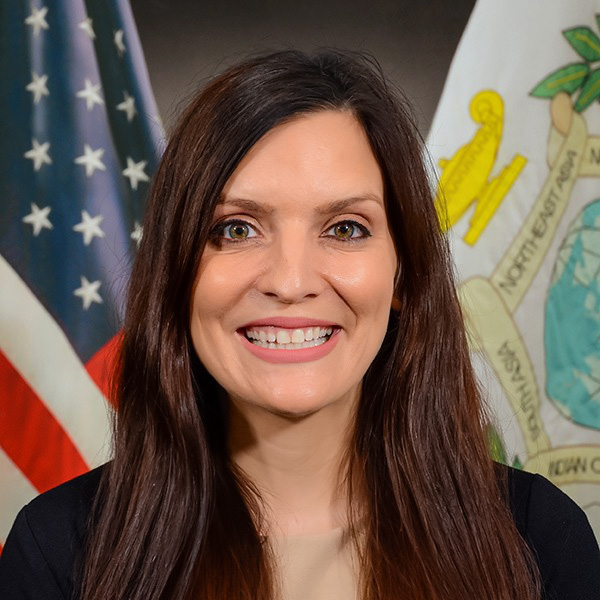
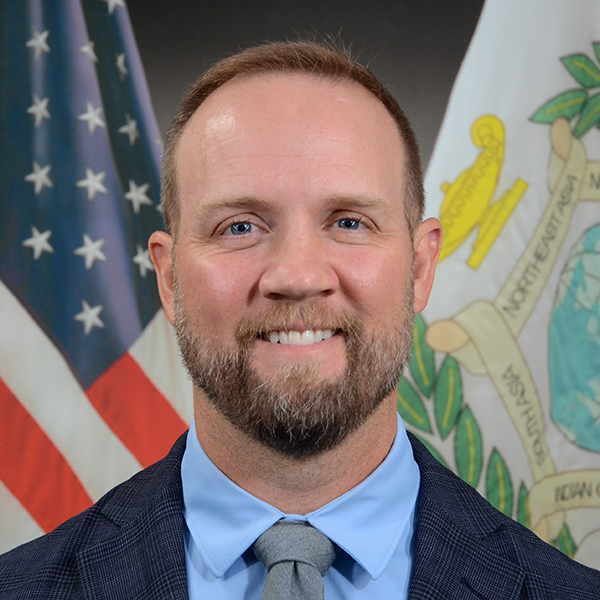
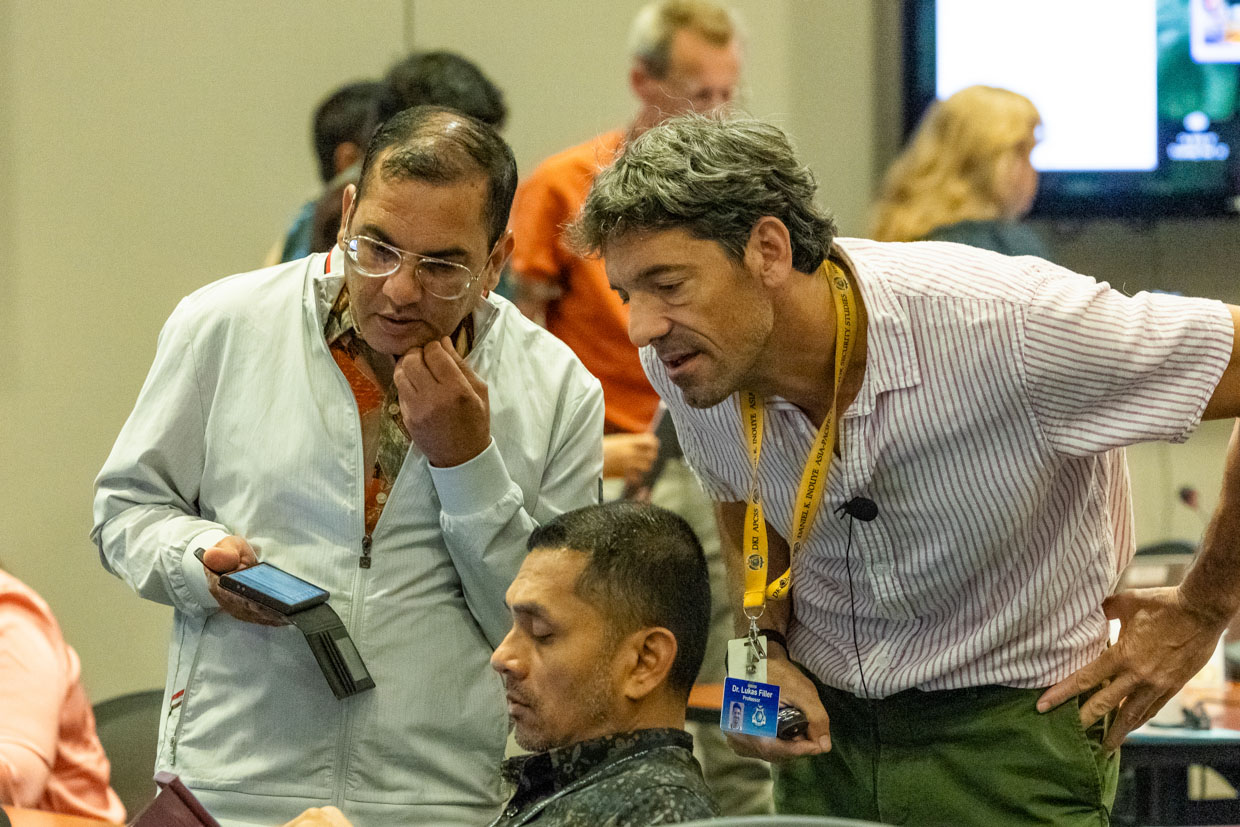


Excellent endeavor! Unless women involve actively in the security- it cannot be viable and effective in either case. Congrats for grand success of the workshop.